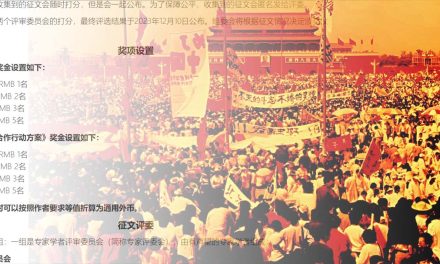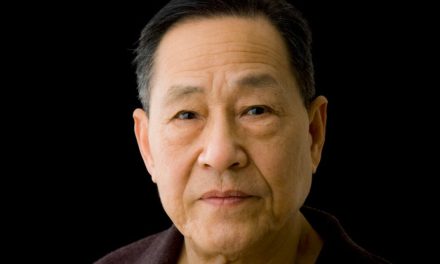Shortly after its 101st birthday on July 1, 2022, the Chinese Communist Party released its latest membership figures. As of Dec. 31, 2021, there were 96.7 million members, an increase of 3.4 million (3.7%) since the end of 2020. Did the party continue its membership drive even during the COVID-19 lockdown? Although we may never know, these statistics raise eyebrows.
The CCP issued an intra-party bulletin with the updated membership figures. While such bulletins are released annually, it has extra significance now due to the forthcoming Party Congress where President Xi Jinping is expected to seek a third term.
Under China’s state propaganda machinery, the “fact” that party membership increased during the worst period of the pandemic is supposed to imply that ordinary Chinese citizens fully supported the leadership’s lockdown measures and were unperturbed by food shortages.
The statistics also reveal a subtle attempt by the leadership to assert that party membership increased the most after Mr. Xi came to power in 2012. The note claims that 119,000 people joined the party before the founding of the People’s Republic of China (“New China” in CCP parlance) in 1949, while 14.2 million joined between 1949 and 1978. The note further states that an additional 60.8 million joined between 1979 and before 2011, the year before Mr. Xi officially came to power.
Yet in the short span between 2012 and 2021, the CCP grew by an astounding 21 million members.
The total CCP membership constitutes a significant proportion of China’s total population, meaning that the ranks and files of the party are ordinary people. In fact, only 6.5 million members are skilled workers. Around 26 million members are farmers, ranchers and fishermen, and over 15 million members are technical personnel employed by enterprises or NGOs. Students and government employees account for 3.1 million and 7.8 million members, respectively, and 7.5 million are classified as “other professionals.” A vast number of members — 19.4 million — are retirees.
Among CCP members, there is an issue of “dual” loyalty: loyalty to the party and loyalty to Mr. Xi himself. The two do not always overlap.
In most cases, the decision of whether to join the party is based not on ideology but on practical interest. Most government positions require party membership; in cases that it does not, it’s almost impossible to obtain a promotion without joining the party. Even in the private sector, party outsiders are likely to have their career development hindered. This is true in all sectors, from business and academia to sports and entertainment. The Western media was astonished upon learning, in 2018, that Alibaba founder Jack Ma is a CCP member. But anyone familiar with the CCP and China’s political economy wouldn’t have assumed otherwise.
Mr. Xi has made relentless efforts to assert the CCP’s dominance and coerce members to reaffirm their commitment to the party’s ideology and “Xi Jinping Thought on Socialism with Chinese Characteristics for a New Era.” It’s no secret, even to Mr. Xi himself, that party members are self-serving. But Mr. Xi is unlikely worried about this, because the “privilege-for-loyalty” approach has always worked ever since the early days of the CCP. Political, economic and social resources are sufficient, as he may believe, to keep members in line with the party’s agenda.
Mr. Xi is more concerned about the party’s loyalty to him. He has spent years building an “imperial” presidency and cult of personality, through his “anti-corruption” campaigns through which potential rivals were purged or deterred. Party members have been asked to pledge personal loyalty to Mr. Xi, reminiscent of Mao’s Cultural Revolution.
As the 20th Party Congress draws near, pledges of fealty to Xi intensify each day. That said, Mr. Xi faces attacks from potential political opponents, including party members and nonmembers. Online criticism of Mr. Xi — ranging from his draconian COVID-19 lockdowns to China’s economic woes — has intensified. While most critical posts are quickly removed by state censors, a new atmosphere in the public discourse is nonetheless emerging. Several anonymous articles have appeared online and have been circulated in China in efforts to hinder Mr. Xi from securing a third presidential term. It’s obvious to China-watchers that the articles were authored by party elites.
There is no plausible way to transform the Chinese public’s growing discontent into meaningful action. But Mr. Xi is likely to remain paranoid, intent on ensuring that the entire party supports his bid for another term. That means 96.7 million party members will need to assert loyalty to him. And the party will need to ensure that anyone deemed “disloyal” stays quiet.
Like all dictators, Mr. Xi has shown a willingness to eliminate any political threat, real or perceived. Meanwhile, the Chinese public faces mass surveillance, quashing dissent. Yet Mr. Xi’s unspoken sense of insecurity has only intensified, as evidenced by ever harsher and ubiquitous measures of control, exploitation and oppression.
Recently, researchers at China’s Comprehensive National Science Center claimed to have developed “mind-reading” artificial intelligence capable of measuring citizens’ loyalty to the CCP. The results can then be used to “further solidify” their obedience to the party. Mr. Xi will try to exploit this new technology to purge dissent within the party and clinch his “presidency for life.”
Under Mr. Xi’s rule, China has become almost indistinguishable from the mass surveillance state hauntingly depicted in George Orwell’s dystopian classic, “1984.”
Imagine — metaphorically speaking — living in a glass house, unclothed, watched and monitored 24/7, with your innermost thoughts and feelings under scrutiny. This “Orwellian experiment,” if it continues unabated, will cause alienation and long-lasting distortions of humanity among the Chinese masses.
• Jianli Yang is founder and president of Citizen Power Initiatives for China and the author of “For Us, the Living: A Journey to Shine the Light on Truth.”





















